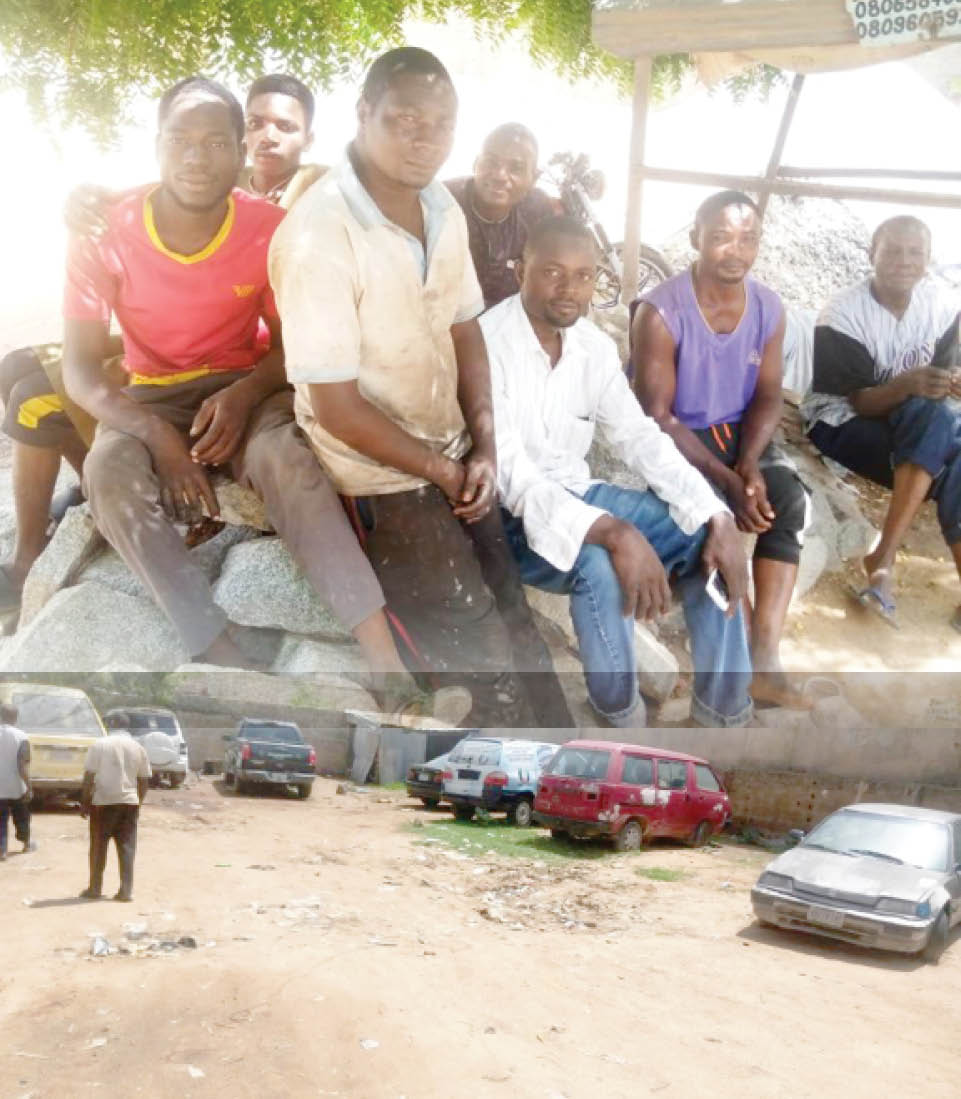As the impact of fuel subsidy removal bites harder across different sectors of the country’s economy, automobile mechanics in Kano State are now devising other means of survival, lamenting how the development has brought about low patronage in their services. Some mechanics who spoke to Daily Trust Saturday in Kano metropolis disclosed that the policy change, which pushed the price of Premium Motor Spirit (PMS) used by most private and commercial vehicles to the roof top has drastically decimated the number of vehicles that used to visit their workshops daily for services, which has taken its toll on their revenue base.
Adams Abdurrahman, a mechanic who operates a car workshop at Lawal Dambazau junction in Kano, revealed that fewer vehicles make their way to his garage, which makes them less engaged currently.
He disclosed that some of his apprentices had absconded from work due to his inability to adequately remunerate them for feeding and transport.
“Fuel subsidy removal has significantly affected our work. On average, my boys and I used to attend to 15 cars in a day, but now, we hardly get more than four vehicles to work on in a day.
- Journalist demands N50m from Nnamani over intellectual property
- Wife stabs husband to death in Bauchi
“I have 10 apprentices working under me directly, but because it is fewer works that we do now unlike in the past prior to the fuel hike, only two of them come to work regularly now. The reason is that what I give them daily to feed and pay for their transport fare isn’t enough for them and this is one of the effects of the fuel subsidy removal on us. I allow them to be flexible,” he said.
Another mechanic, Mikail Yusuf, said their workshop in the Rimin Gata area remained less busy compared to a few weeks ago when petroleum product was cheaper and vehicles were on the roads.
According to Yusuf, their work site now operates marginally due to poor patronage from clients.
“There is drastic reduction in the number of vehicles we used to attend to earlier before the removal. As you can see, we were sitting down when you came in but that didn’t happen before. Prior to this moment, as soon as you deviated from the main road you would see cars parked everywhere here.
“Most of our customers have now parked their vehicles, they don’t drive often now. On the average, we used to work on 20 vehicles a day, but now, everything is dry. It is God that sustains us now. We have mechanics and panel beaters but we are all waiting to see what God would do,” he said.
Saifullaihi Ruwaya, a mechanic in Rimin Gata workshop, said some clients pressurised them to devise a means of reducing fuel consumption in their cars.
Ruwaya recalled, “Due to this problem, people will come to us and say that their vehicles are consuming fuel too much, so what can we do to minimise fuel usage in cars? But I think that is wrong. Fuel consumption is the same although we do some connection that reduces fuel consumption a bit for some type of vehicles not every car. It is the car wiring that we make some changes in it to reduce.”
Abdulfatai Jamiu, who repairs cars around Maganda Road in the state metropolis, explained, “If fuel is sold at N200, majority of car owners do not have a problem putting their vehicles on the road, and as a mechanic you don’t even need to pray for anyone’s vehicle to have a problem to be able to feed.
“Naturally, with the way automobiles are made, the wear and tear that comes with everyday usage is enough for people to regularly bring their vehicles to our workshop. But now, I have customers that told me they have packed their vehicles at home and are now using commercial tricycles to go about in the city.
“In a typical garage (workshop) you have more than three professionals, all hoping for a vehicle to be brought in. For instance, I am a mechanic, I work on Toyota and Honda cars, but we also have electricians and panel beaters, all in this place and all of us are suffering,” he said.
He said he had started considering leaving the profession for commercial driving but that his friend, who commutes the Kano-Abuja highway, discouraged him.
“My friend told me that even they (drivers) are finding things difficult because travellers have reduced. You know transport fare has more than doubled because of this same problem. In fact, I met my friend sleeping at home when normally he would have gone to Abuja and return the same day,” he said.
Another mechanic in the ancient city who was identified simply as Umar Mechanic, said he observed that vehicular movement had drastically reduced as many of his clients park their cars to minimise the cost of fuel.
“Some of our clients who possess three to four cars now use one, or at most, two for daily movement and dropping and picking up children from school. And that affects our activities here. If there was less work, we would have like 10 vehicles for big and small work. But now, 4, 3, or even 1 car a day are brought,” he said.
Friday John, who works at Hygrade Autocare at the Bakar Lamba area, said they used to work actively from morning to evening, but that is no longer the case.
“There were considerable number of vehicles coming here prior to the removal of fuel subsidy, but currently, as you can see, there is virtually no work, which is a quite different reality from what is used to be. Even if I can’t give you a specific number of vehicles per day, I do know that we worked from morning till evening. Today isn’t like that. We receive one or two a day now,” he said.
A private car owner, Kabir Ammani, said the fuel subsidy removal necessitated to suspend using his car and prefers his motorcycle due to fuel and other needs.
“I used to fill my tank with about N15,000, now it will take me almost N40,000 to do this and because of my daily routine, a full tank barely lasts more than a week. So, imagine how much I will be spending on fuelling my car in a month at this rate. This is why I parked the car and I am now using my motorcycle, and with just about N2,000 I will have a full tank. My car mechanic will have to bear with me because before he sees me in his workshop, it will take a very long time,” another car owner said.
Another resident and car owner, Bala Kwaciri, explained that he minimised movement with his car, which invariably reduces his possibility of going to mechanics.
“I deliberately reduced using my car when running errands. I use it mostly for dropping and picking up my kids from school; for all other things I use a motorcycle. That means going to the workshop for services and repairs less.
The mechanics further decried that their businesses halting at the moment is a great challenge to them, considering the harsh economic situation of the country. They appealed on the relevant authorities to have them in mind when thinking of how to ameliorate the suffering the fuel subsidy removal has brought on the people.

 Join Daily Trust WhatsApp Community For Quick Access To News and Happenings Around You.
Join Daily Trust WhatsApp Community For Quick Access To News and Happenings Around You.


